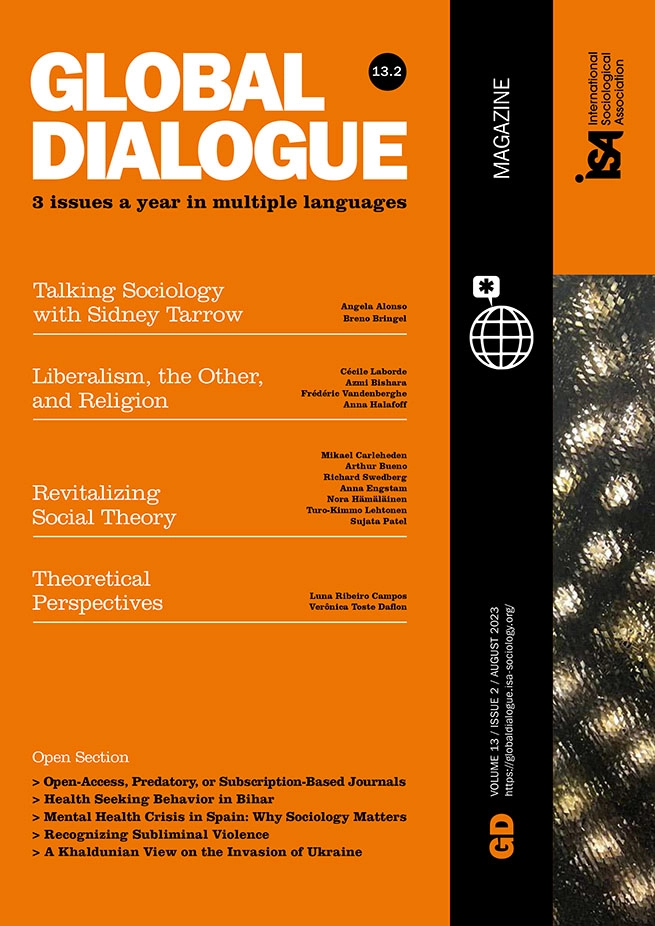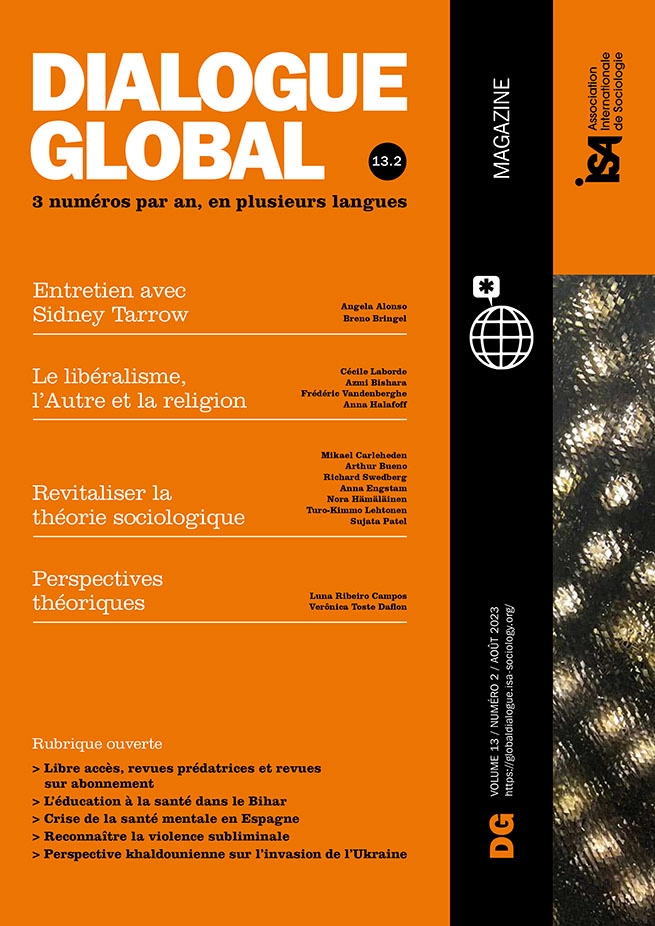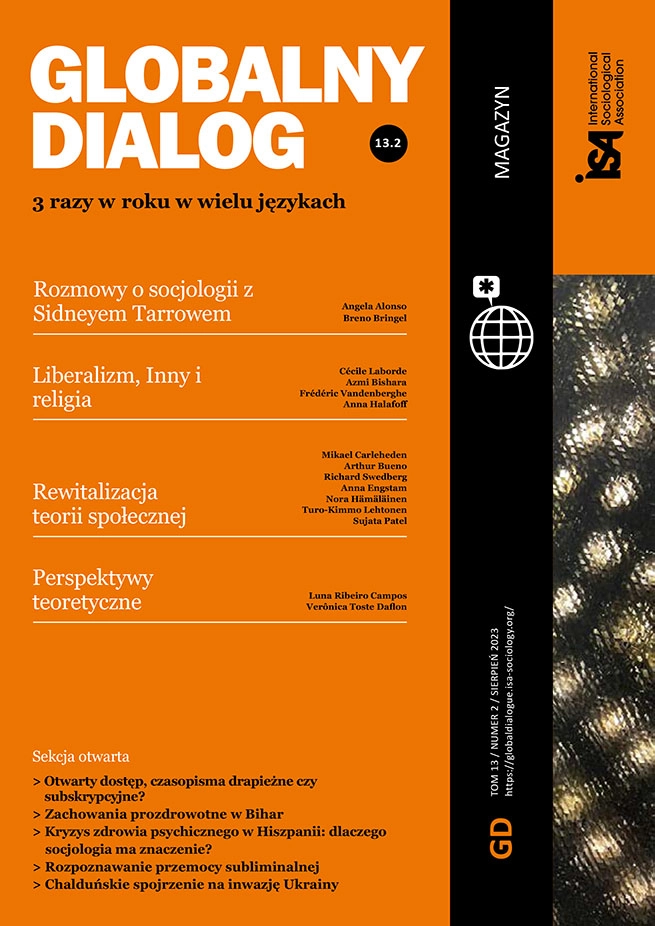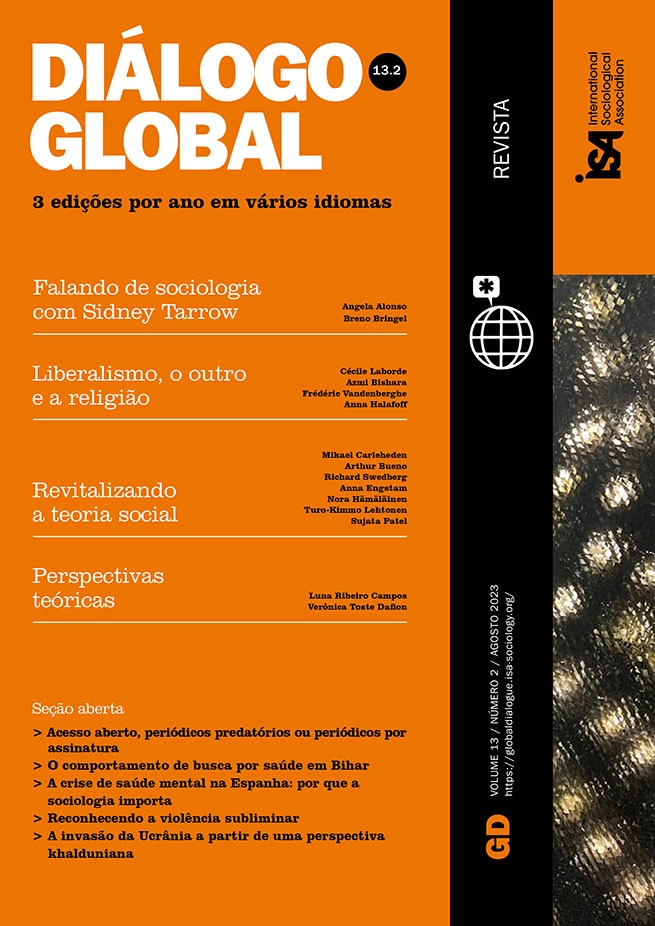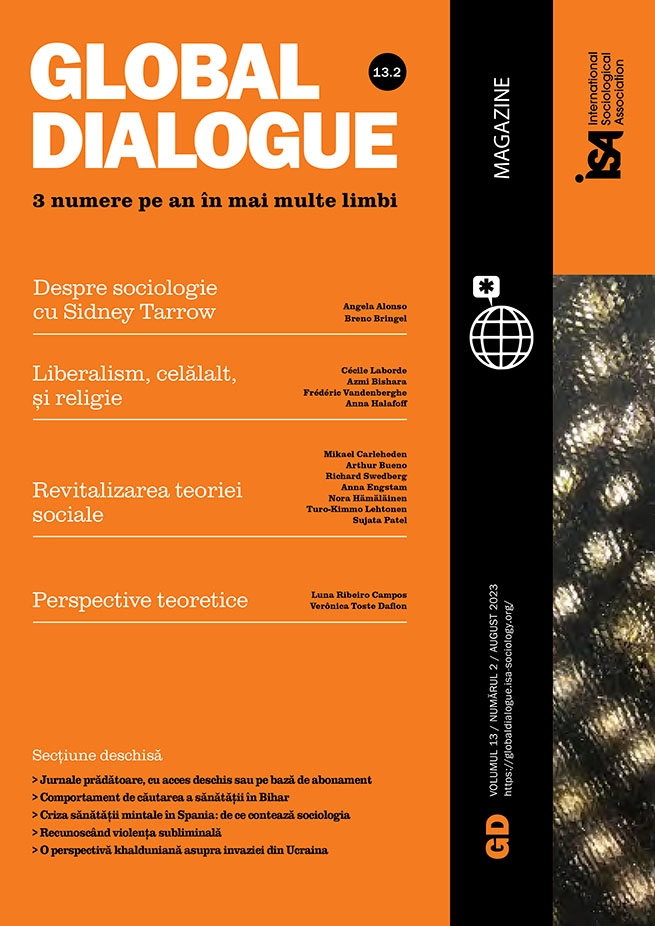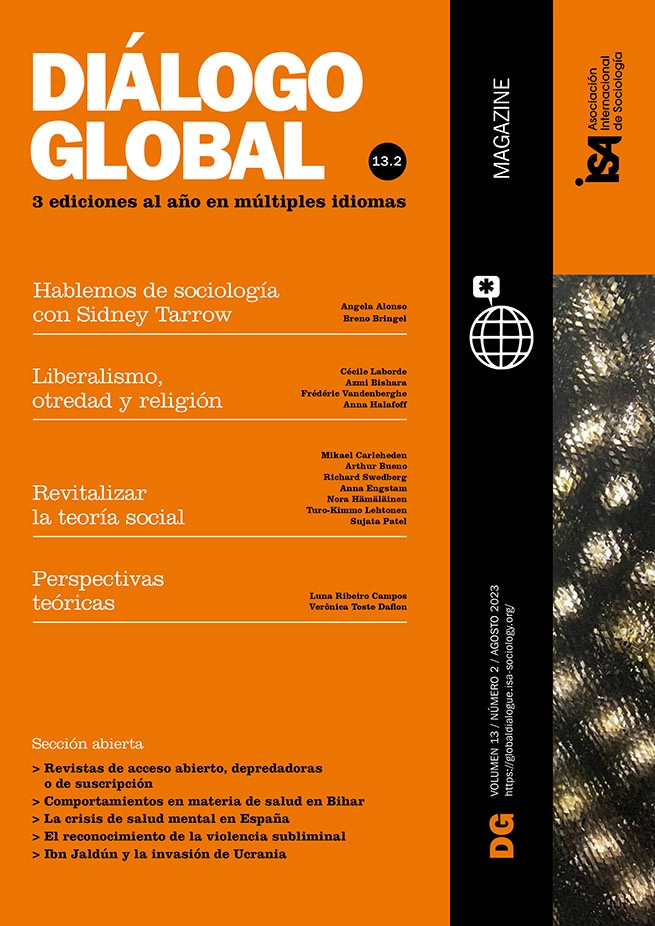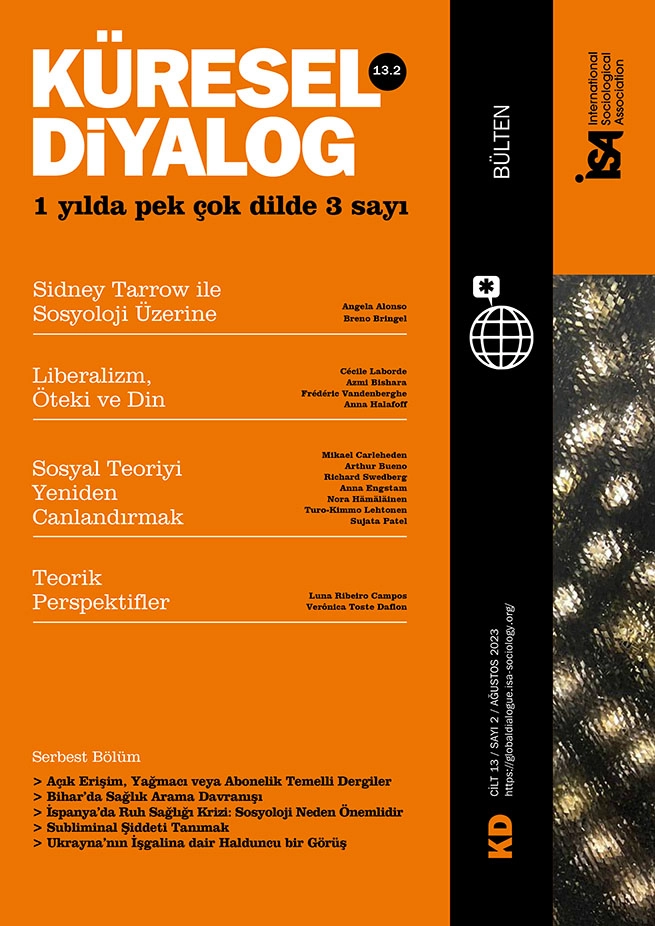While current mental health interventions are usually placed within the realm of healthcare and thus deemed to be within the system, mental health forms part of the lifeworld and is integrated into one’s culture, social relations, and personality. Sociology has much to offer to better understand mental health and distress. Here, I advocate a greater role for sociology when addressing these issues by suggesting that we have been witnessing disturbances in cultural reproduction and social integration. These are manifested as a loss of cultural orientation, alienation, and consequently psychopathologies. While my argument is centered on the case of Spain, it should strike a chord with readers in other countries too.
Over the last year, mental health and illness have attracted unprecedented attention in the Spanish public sphere. Politicians, journalists, and activists have all been citing national and international statistics demonstrating a decline in mental health in the country. Suicide mortality has been rising. Antidepressant drug consumption has tripled over the past 20 years and is amongst the highest in Europe. Worse still, Spain reports the highest consumption of anxiolytics in the world. A survey of Spanish public employees’ mental health in 2022 puts these rates into context: nearly half disclose relying on psychopharmaceuticals to alleviate the anxiety they experience derived from their work.
These figures, therefore, reflect not only individual issues but social processes too. Nevertheless, the media immediately turn their cameras towards psychiatrists and psychologists rather than sociologists. Whilst the psy-disciplines are irreplaceable when it comes to helping individual people, they tend to align with the (bio)medical model that decontextualizes and individualizes the social. Comments by practitioners frequently end with the call for more resources for mental healthcare: more specialists and more services. This is undoubtedly important. Yet, I maintain that we should consider other responses too.
Culture and self-worth
Cultural certainties – public ones, as (re)produced through social relations and institutions, but also personal ones, as embodied through socialization – guide our expectations, decisions, and actions by securing “coherence of knowledge sufficient for daily practice” (Habermas 1987). In a way which has become reinforced by neoliberalism, culture increasingly supplies us with scripts of the self that emphasize competitiveness, material success, and consumption of particular lifestyles (Lamont 2019). Definitions of worthy lives become more homogeneous and predominantly based on productive performance and consumption over and above other criteria of social worth.
The stated goals are deemed attainable for everyone through hard work and effort, which results in the classification of ‘winners,’ who are believed to work hard and push themselves, and ‘losers,’ who are presumed to lack such aptitudes. But these measures of self-worth simply are not accessible to everyone, despite their efforts. Being born into a wealthy family gives one an extraordinary advantage in Spain. However hard you study and work, your chances of success are much lower if you were born poor than they are for your more affluent fellow citizens.
Most people do construct their future projections on the basis of incorporated cultural scripts rooted in the ideals of material success. Many of them, however, encounter objective chances that clash with such imaginaries, yet see that the luckier ones have it easier in life. This mismatch between embodied expectations and objective chances may lead to a crisis in cultural orientation and feelings of sadness, anger, or shame. Loss of (belief in the) future is, I suppose, one of the most direct paths to misery.
Work and social relations
Besides material deprivation, sociology might also point to positional suffering. For instance, despite a relatively advantageous position, a young academic who cannot secure decent employment but who was ‘promised’ job security and recognition as a reward for years of study and effort may equally experience existential angst. Including and going beyond the topic of fair pay, surveys in Spain indeed demonstrate an association between mental distress and such workplace characteristics, that is, the meaningfulness of work, or lack thereof.
Institutional relations that foster autonomy, dignity, and recognition in the workplace would result in an improvement of employee well-being by increasing solidarity amongst and beyond the organization’s members, by rewarding effort, and thus, by helping to bring objective chances into line with subjective expectations. Meaningful work promotes the social integration of the lifeworld. Yet, there has been a noticeable deterioration in such work characteristics in Spain: less autonomy, dignity, and recognition; and more mental distress.
Disturbances in work relations could, nevertheless, be mitigated by solidarity within informal social networks, particularly in Southern European societies that are considered strong family cultures with weaker non-family ties. However, all social relations – family and non-family – have been experiencing a decline in their strength and function in Spain (Ayala Cañón et al. 2022). This process initiated before the COVID-19 pandemic but has accelerated with it: people meet their friends and relatives less frequently, count on less social and emotional support in their networks, and essentially, feel lonelier.
Thus, while disturbances in the cultural domain result in the loss of cultural orientation, disruptions in social relations – be those work relations or informal social ties – lead to increasing alienation between individuals. This, in turn, generates the mismatch between what people expect on the basis of their socialization and how their lives are going, with some lives being more (un)livable than others, which may consequently manifest as psychopathologies.
The system
Finally, although here I focus on the lifeworld, sociology should aim to connect the two layers of society, where the system with its economic and political–bureaucratic spheres “has to fulfil conditions for the maintenance of sociocultural lifeworlds” (Habermas 1987). This goes beyond mental health services, which can indeed alleviate an individual’s suffering. Yet, in the current state of things, individuals return to the lifeworld, which is alienated and lacks meaning.
Without broadening the systems of worth so that more people can feel valuable, without improving labor relations and opportunities so that work rewards effort, or without investing in social policies such as housing and family which promote and transmit orders of worth but which have been traditionally weak in Spain, the pattern endures. In other words, the vicious cycle of the alienated and meaningless lifeworld, on the one hand, and mental healthcare tackling symptoms rather than causes, on the other, continues.
As sociologists, we are in a position to bring these processes and explanations to the fore. However, even when engaging with mental health and illness, sociological research tends to remain within the limits of medical sociology. Crossing boundaries towards, for example, cultural or economic sociology could, nevertheless, greatly benefit knowledge and practice. Thus, I argue that it is time to intensify this dialogue between different sociological sub-disciplines.
References:
Ayala Cañón, L., Laparra Navarro, M. and Rodríguez Cabrero, G. (eds.) (2022) Evolución de la cohesión social y consecuencias de la COVID-19 en España. Madrid: Fundación FOESSA.
Habermas, J. (1987) The Theory of Communicative Action. Lifeworld and System: A critique of Functionalist Reason. Vol. 2. Cambridge: Polity Press.
Lamont, M. (2019) “From ‘having’ to ‘being’: self-worth and the current crisis of American society.” The British Journal of Sociology 70(3): 660–707.
Sigita Doblytė, University of Oviedo, Spain <doblytesigita@uniovi.es>









